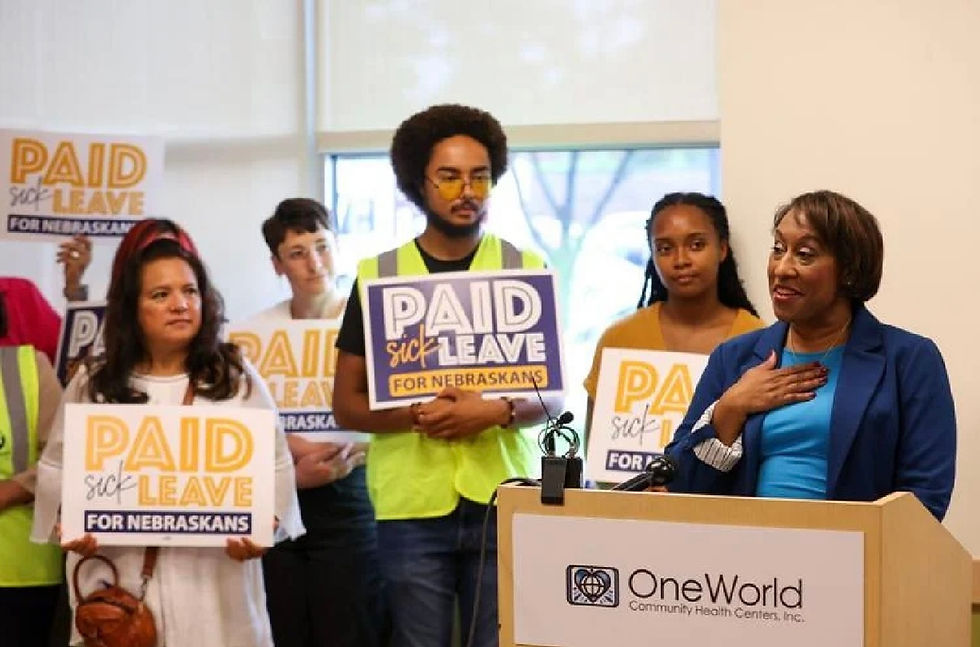Sierra Edmisten, a mother from Hastings, Nebraska, faced a difficult choice when her son was hospitalized for over a week. She had to decide between spending time with him or continuing to work in order to maintain their income. This predicament was not new to Edmisten, as she had encountered similar challenges in previous jobs that lacked paid sick leave. Eventually, she had to leave a job she loved to find one that offered this essential benefit.
On Tuesday, Edmisten joined a press conference alongside other advocates, representing a petition drive aiming to make paid sick leave mandatory for all Nebraska businesses. The initiative, supported by the Women's Fund of Omaha and various state and local organizations, seeks to get the issue on the ballot for Nebraska voters in November 2024. To achieve this, they must gather around 90,000 valid signatures from registered voters by July 1, 2024.

Photo by NIKOS FRAZIER, THE WORLD-HERALD
If approved by voters, the initiative would require all Nebraska businesses to provide paid sick leave for their employees, starting from October 1, 2025. The amount of sick leave offered would depend on the size of the organization, with businesses employing fewer than 20 workers required to offer at least five days of sick leave and larger businesses mandated to provide at least seven days.
Similar measures for paid sick leave have been proposed in the Nebraska Legislature before, but they were unsuccessful. Hence, the organizers decided to take the matter directly to the voters through this petition drive, which they officially initiated in June by filing paperwork with the Nebraska Secretary of State's Office.
Jo Giles, the executive director of the Women's Fund of Omaha, emphasized that no Nebraskan should have to choose between their paycheck and their health, or the health of their family. According to Giles, around 250,000 Nebraskans currently work full-time jobs without guaranteed paid sick leave, with a significant number employed in the food, construction, education, and transportation industries.
Andrea Skolkin, CEO of OneWorld Community Health Centers, pointed out that the lack of paid sick leave disproportionately affects people of color and other minorities. Without this benefit, workers are less likely to seek medical care, leading to the spread of diseases. Skolkin and others stressed that paid sick leave not only benefits the health of workers and their communities but also helps businesses by aiding in talent recruitment and retention.
State Senator Tony Vargas of Omaha, who is also a Democratic candidate in the area's 2nd Congressional District, also supported the initiative. Vargas had been among the lawmakers who previously attempted to make paid sick leave mandatory through legislation. He emphasized the importance of being able to care for one's family without fear of losing their job or income.

Comments